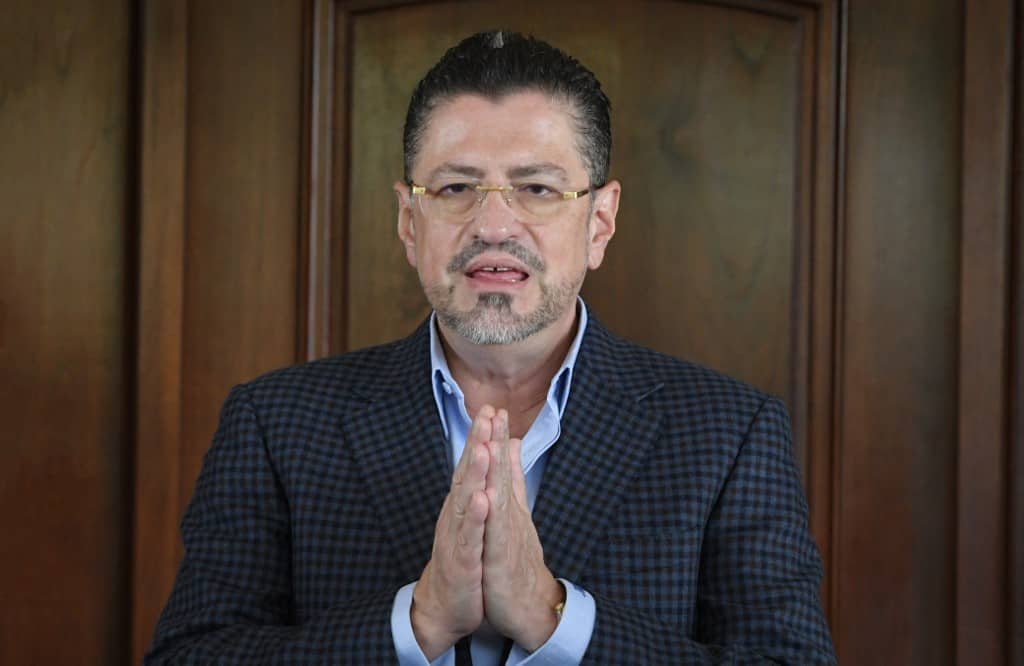Costa Rican President Rodrigo Chaves abruptly directed Minister Natalia Díaz on Wednesday to withdraw all executive security reform bills currently under parliamentary review.
The stunning reversal comes after a majority of legislators on the Security Commission rejected bill 23,689, part of Chaves’ flagship anti-crime operation “Costa Rica Segura” introduced in April 2023. Two additional executive bills aimed at containing violent gang activity were preemptively shelved to avoid further dismissal.
A visibly frustrated Chaves shifted blame fully onto the Legislative Assembly for inaction on the pressing security crisis gripping the nation. “From this moment, Congress holds absolute responsibility to pass laws guaranteeing the dismantling of organized crime, without executive participation,” emphasized Chaves during a speech on public security.
The president staunchly defended his original proposals, including the controversial Law of Dangerous Persons which deputies criticized as contrary to the philosophy of Costa Rican criminal law. Chaves dismissed skepticism about their potential impact on alarming homicide rates and reiterated the urgent need for decisive legislative measures against rising gang warfare.
Congress firmly maintains the bills put forward by Chaves in April were fundamentally flawed, harboring constitutional issues that warranted negative rulings or recommendations for dismissal.
“The President continues trying to grab attention with populist speeches while shirking responsibility,” remarked the head of the opposition PUSC party. Critics highlight this week’s grand security strategy unveiling comes fully 19 months into Chaves’ term.
With over 800 homicides recorded nationally thus far in 2023, Costa Rica finds itself mired in a security crisis unprecedented in recent history. Ordinary Ticos increasingly live in fear of violence from warring organized crime outfits who act with widespread impunity.
Deputy Juan Marin, who sits on the Security Commission, stressed that while legislators share the president’s concern, successful anti-crime legislation requires diligent scrutiny and constructive dialogue absent theatrics.
Political observers note dysfunction between the Chaves administration and a fractured, multi-party Congress continues hindering progress on vital reforms as most Costa Ricans perceive a lack of concrete action from both branches.
“Ticos demand solutions not speeches – the time for partisan finger-pointing is over,” implored Archbishop José Rafael Quirós this week. “Leaders must set aside egos, sit down in good faith and craft prudent laws that restore security while upholding ethics and dignity.”






